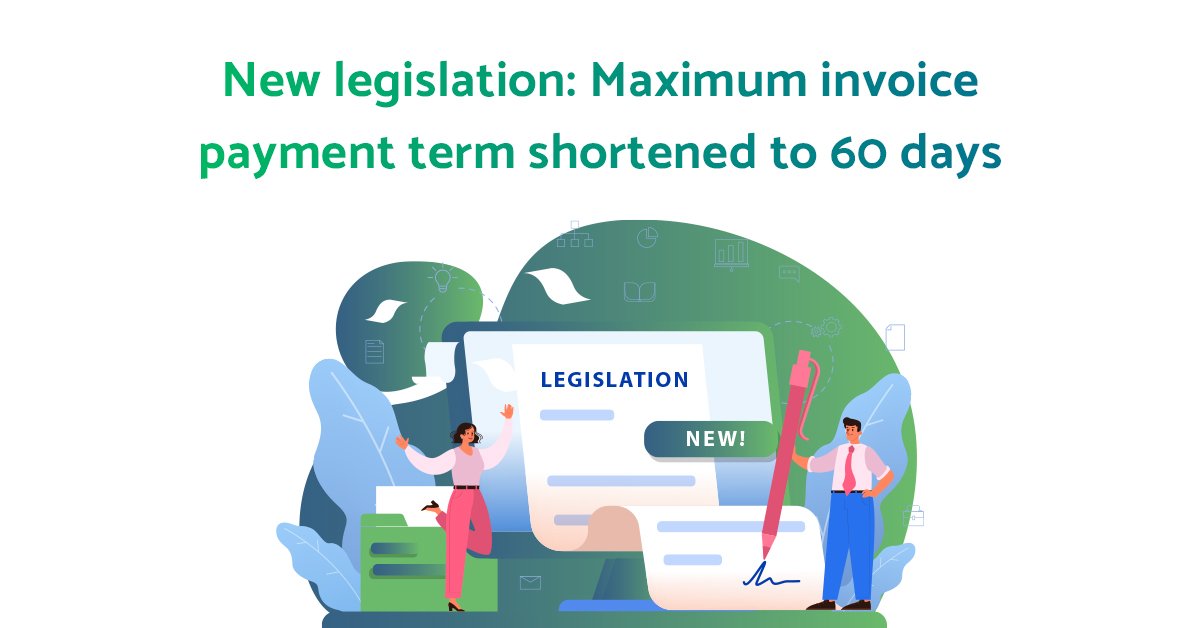New legislation: Maximum invoice payment term shortened to 60 days
On February 1, 2022, the legal term of payment for an invoice between companies was reduced to a maximum of 60 days. This new law was passed somewhat unnoticed in August 2021 but has had a significant impact. This article offers an insight into what this means for your business.

Why a new law?
Before the new law existed, the legal term for paying an invoice was 30 days. However, customers could agree on different terms with their suppliers in their sales contracts. This option was regularly used because delaying payment can make a significant difference to a customer’s cash flow.
Large companies thus often insisted on contractual payment terms of 90 and even up to 120 days. This was not good for their less capital-intensive suppliers. The long wait for payment was often a serious drain on liquidity positions.
All companies equal in the law
The new law extends the scope of the law of April 29, 2020. This law already limited invoice payment terms for SMEs. With this new law, the distinction between SMEs and larger companies is removed, and the new legislation applies to all businesses.
In its wisdom, the government has provided for one exception, namely itself. In the case of government contracts, the government can deviate from the legally defined payment terms by royal decree.
Payment term limited to 60 days
From now on, a business-to-business agreement may stipulate a maximum payment term of 60 calendar days. Longer terms are automatically null and void and reduced to 30 calendar days. Contractually, it is not possible to deviate from the maximum stipulated term.
In this way, the legislator has prevented parties from abusing their purchasing power by enforcing an extremely long payment term. Legal or contractual checks that need to be carried out must also be completed within the 60 days, so the timeframe cannot be extended by another route.
When does the payment term of an invoice start?
The payment period starts automatically when your customer receives your invoice. You cannot contractually deviate from this date.
Adjust your general terms and conditions
Do you have general terms and conditions? And do they mention a payment term of more than 60 days? Then change them quickly so that you are in line with the new legislation. Put your general terms and conditions on all your outgoing documents or refer to them and make them easy to find on your website.
What if your customer does not keep to the legal payment term?
As soon as the legal payment term has passed, the invoice expires, and you can claim the debt. A strict follow-up of unpaid invoices is a must for every company. If your customer has still not paid after one or more reminders, we advise you to switch to a higher gear.
Unpaid can help you with this. We will be happy to discuss the possibilities with you!